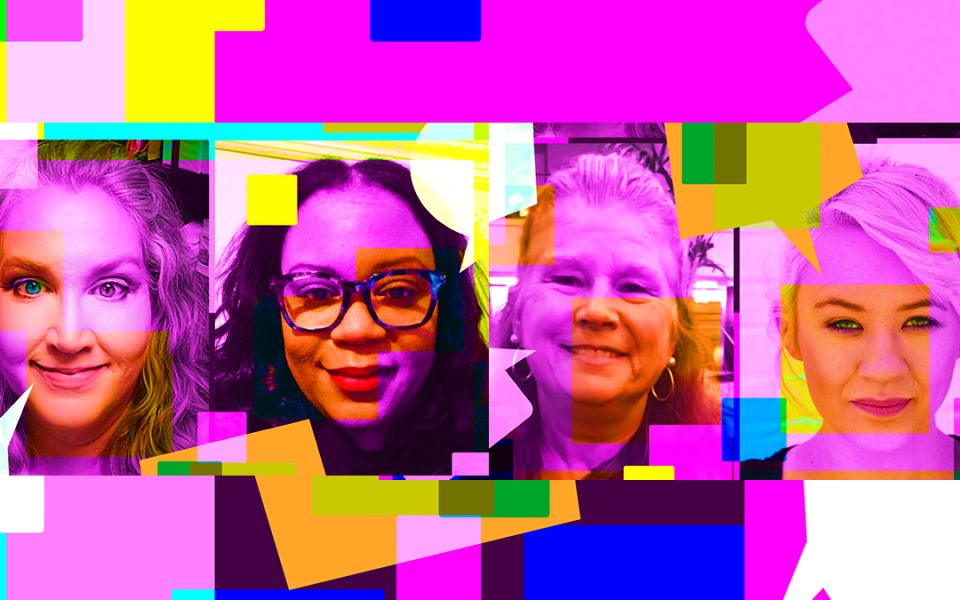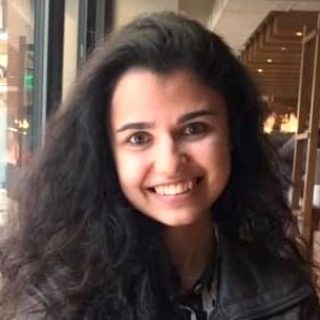Featured photo from L-R: Myra Dancy Doyle, Natasha Smith, Abby Catoe and Autumn M. (courtesy photos)
In Mississippi, people wait impatiently for the Supreme Court to decide a case that could limit abortions to the first 15 weeks of pregnancy. In Texas, lawmakers have already instilled a six-week abortion ban.
Now, in North Carolina, people watch the news and their social media feeds as state lawmakers introduce copycat legislation with similar abortion restrictions. The bills are what are known as “trigger laws,” meaning if the Supreme Court decides to change the precedent on abortion access, they will almost certainly become law. One example of this is HB 31, which bans abortion of any fetus with a heartbeat.
TCB spoke with five North Carolinians who shared stories about their own abortions. Each of their experiences were different, but all five explained how they did not regret their decision, and that it was their choice to make. Some of the individuals have only been identified by their first name for privacy’s sake.

Myra Dancy Doyle, 55, she/her
On Dec. 3, Myra Dancy Doyle was angry. She was angry reading the news; she was angry listening to conversations about who deserves to have an abortion and who doesn’t; and she was angry about the nine judges on the Supreme Court debating whether or not to reverse Roe v. Wade.
Thus, Doyle took to Facebook.
“I am one of those women who had to have my labor induced early to save my life,” she wrote. “My baby girls, yes that is plural, had all died in utero and were poisoning me. This happened in four different pregnancies. In some states I would have been made to carry to term, even though I had developed sepsis.” Sepsis, or blood poisoning, can develop with some miscarriages.
Her Facebook status garnered overwhelmingly positive responses, but Doyle says she did not care either way.
“People need to know,” she said. “Women have been having abortions since time in memorial. And if we don’t have the medical procedure, we’ll go back to the coat hangers in the back alleys. More women will die.”
As long as her rights are being debated by the federal government, Doyle will remain angry. As both a sociologist and a Christian, she says that those who call themselves pro-life do not consider the life of the mother.
As a mother to two sons age 30 and 23, Doyle noted how important it was for her to have an open dialogue with her kids early on. Her sons learned about safe sex at the age of eight, and they know about Doyle’s abortions, all of which took place between their births.
“For me, I had to reconcile that my life as a mom to my living child was what took precedence,” she said.

Natasha Smith, 43, she/her
Natasha Smith counts herself lucky. When she needed an abortion, she was able to get one at the Planned Parenthood in Greensboro. She was in law school at the time and caring for a mom with a terminal autoimmune disease. Having a child then was not an option, she said.
Seven years later, she had her son. Now, she says, she feels rage whenever she sees anyone threatening abortion rights.
“When Trump got elected and we knew he was going to do whatever he could to pack the court, I went and got an IUD,” she said. “Having had childbirth, the IUD was still ridiculously painful that after three tries to insert it, I had to stop because I was in so much pain.”
If abortion had not been legal in North Carolina when she needed one, Smith said, “I probably would have been willing to drive as far as I had to. There was part of me that was trying to figure out a way to see if it was possible to have that child, and there was no way. There was no mental gymnastics that I could come up with that made it make sense.
“I enjoyed being pregnant when I wanted to be pregnant,” she added. “All that comes along with being pregnant, if that’s not a choice, I can’t imagine how horrible it would be. I can’t imagine going into childbirth if you didn’t want to. That isn’t anything I would put on anyone.”
Jess, 32, they/them
As someone who is queer and nonbinary, Jess said they are used to people saying nasty things about them. Still, seeing the abortion debate over social media over the last few weeks has been difficult for them.
“I never planned on having kids and never wanted to give birth, even though I work with kids and I love them,” Jess said. When they found out they were pregnant, Jess said, “I immediately went and looked up places you can get an abortion. It was never even a question.”
Asheville’s Planned Parenthood was their only local option, but there was a long wait. They checked in Charlotte and Greensboro and found a quicker appointment at the Greensboro clinic.
“I feel very privileged I was able to drive somewhere, and also that I was able to afford it,” they said. “I went the day after paycheck. I was living paycheck to paycheck at the time. I had just gotten a new car a few months before. What if I still had my old car that couldn’t drive that far?”
Jess met all sorts of people in the waiting room, some of whom had gotten abortions before and others who already had kids. Inside, an apologetic nurse told Jess all about their other options, including adoption. Then, they offered to show Jess the ultrasound photos.
In North Carolina, it is not required to show people getting an abortion their ultrasound photos, but it used to be. It is in law in several other states.
“It wasn’t difficult for me,” they said. “It wasn’t something I dwelled on, but I know it is for other people.”
If abortion had not been an option for Jess, they say they would have traveled somewhere else.
“I was not going to give birth,” they said. “That was not an option for me. I’m originally from Illinois, so I probably could have gone there, but I don’t know that I could have swung it financially back then. I had just enough because I had just got paid, but to drive or fly, I don’t know that it would have been possible. I couldn’t afford to take off work.”

Autumn M., 30, she/her
For Autumn M., being a mother has only reenforced how important it is that people have the right to terminate their pregnancies.
“Being a mom is the hardest thing I’ve ever done, and I would not wish this upon anyone who didn’t want it,” she said. “I was raised by a mom who didn’t want me, and I know what that’s like. The only reason I’m able to be a capable and loving mom now is because I had my abortions.”
Autumn became a mother almost three years ago. She wants abortion to be accessible in case her daughter ever needs one in the future.
Autumn has had three abortions — one each in Alabama, North Carolina and Maryland. Each time, she says, she was in a bad place with her mental health and unable to protect herself against unwanted pregnancies.
That second abortion, which she had in Charlotte, occurred after she ran away from a relationship in which she had been abused since the age of 18. She was 22 or 23 at the time and found herself in another abusive relationship. She was pregnant within the first six months.
“It was like a snap back to reality,” she said. “It was an, Oh, fuck, I gotta get out of here. I made the decision to terminate about eight or nine weeks along. I went to the clinic in Charlotte. I don’t remember how I paid for it. I do remember that there weren’t clinic escorts at the time.”
If she got pregnant now, Autumn said, she would absolutely have another abortion.
“I’m remembering before my second one, I was Googling ‘at-home abortion methods,’ and I remember reading overdosing on calcium was one,” she said. “I can’t say I wouldn’t try a very unsafe method if I were unable to access one. I also know you can get the abortion pill online, and that would probably be my first choice.
“It’s like any medical decision,” she continued. “You don’t have to take it lightly. I didn’t take any of mine lightly. I made the right choice for me, not for anyone else.”

Abby Catoe, 62, she/her
Abby Catoe was 15 years old during her first abortion and 16 for her second.
“Both times it was unplanned, and I was much too young to have a baby,” she said. “I elected to end the pregnancies and made the decision on my own.”
Catoe was able to get both abortions in Winston-Salem in the 1970s. It was a decision she did not take lightly, but ultimately decided she needed to do for herself.
Today, Catoe has two daughters and grandchildren by both. One of her daughters also got an abortion at the age of 18 or 19.
“I remember going to the clinic with her and I kept crying and crying at the thought of losing my grandchild,” she said. “But I understood why she needed to do that. She now has a son who she loves dearly, and I can’t imagine how her life would have been different.”
Catoe says she would have had plenty of love and support had she had a child so young, but her life would have looked very different.
“My family was not a family who valued education,” she said. “We were very poor. I think I would have been stuck in that cycle of impoverished single mothers who don’t get an education and it just would have kept on going.”
Today, Catoe is a Christian pastor at First Christian Church of Walnut Cove as well as a supporter of Planned Parenthood and of pro-choice movements. She has been tuning into the Supreme Court hearings when she can and struggles to understand the opposition.
“They kept dodging the questions posed to them by the Supreme Court justices,” she said. “I understand how people feel the way they do about taking a life in that stage. It is a life. I do believe that. But I know God wants the best for every person who does come into the world.”
To learn more about what it’s like to get an abortion in the Triad, read our article from 2019 here.
Join the First Amendment Society, a membership that goes directly to funding TCB‘s newsroom.
We believe that reporting can save the world.
The TCB First Amendment Society recognizes the vital role of a free, unfettered press with a bundling of local experiences designed to build community, and unique engagements with our newsroom that will help you understand, and shape, local journalism’s critical role in uplifting the people in our cities.
All revenue goes directly into the newsroom as reporters’ salaries and freelance commissions.


Leave a Reply